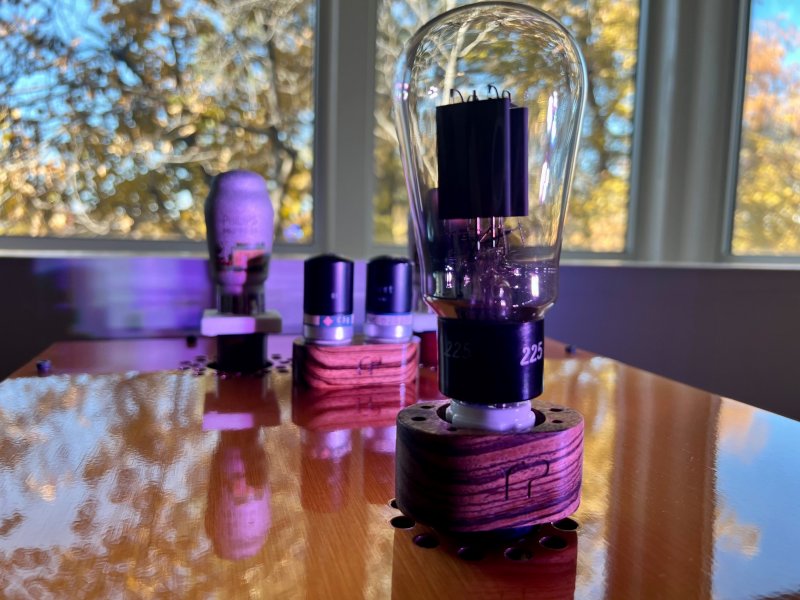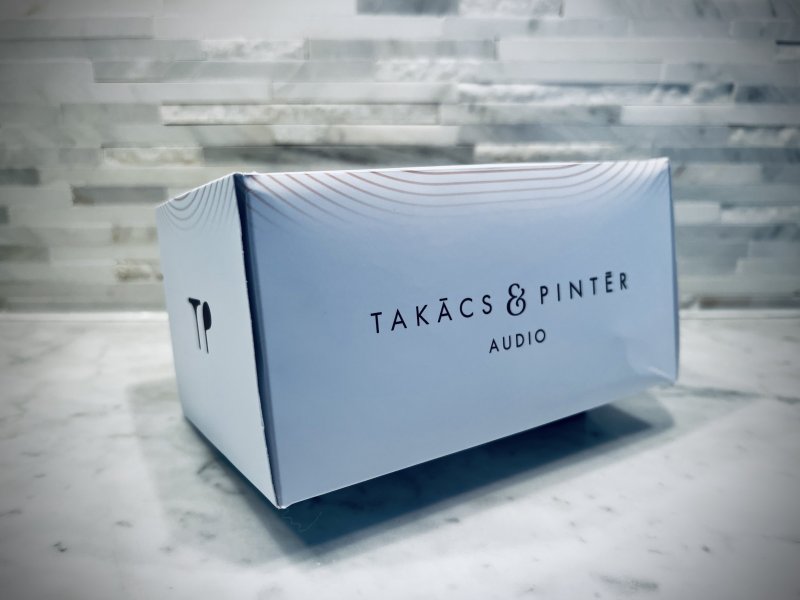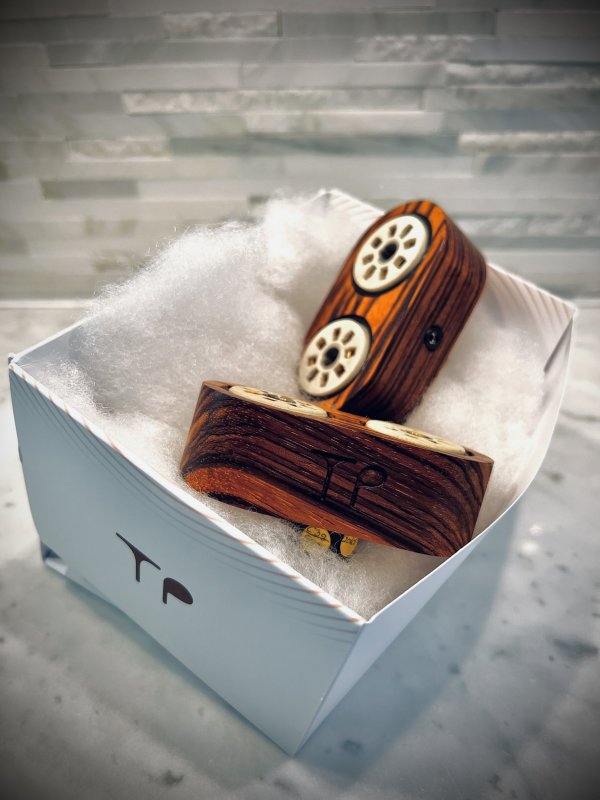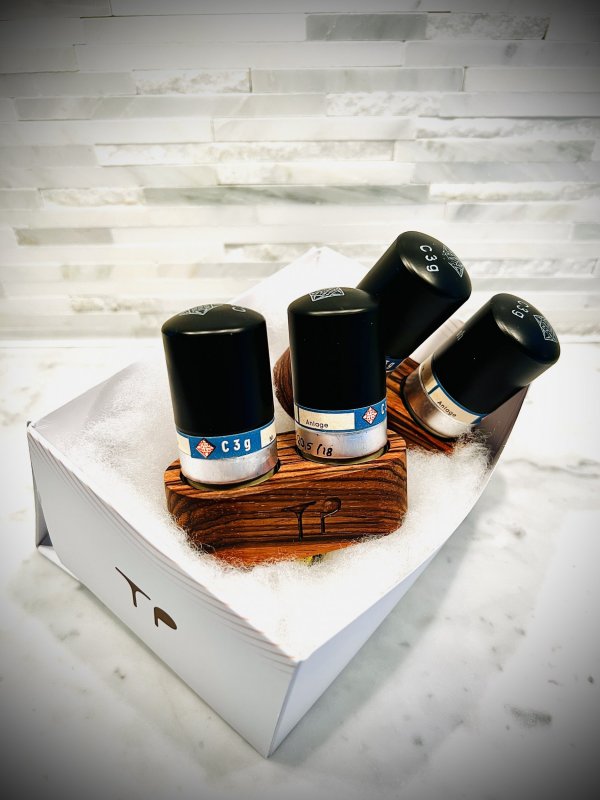I found my system lost the mid bass for few days and finally found the root cause which 1 of my RK242 died... Searched on the forum and web and understand that they dont produce 242 and hard to find a quad pair for my balance Pacific on 2nd hand market, looking for the the recommendations from you guys for a quad pairs, also please let me know if anyone want to sell your RK242, Thx Gents
Lampizator Valve / Tube Rolling Review Thread
- Thread starter Zero000
- Start date
You are using an out of date browser. It may not display this or other websites correctly.
You should upgrade or use an alternative browser.
You should upgrade or use an alternative browser.
Just use/enjoy the pair at the back and DAC in SE mode (RCA) while you look for spare pair...
I was informed this morning by a friend of mine about existence of the following S. Korean tube manufacturer https://www.straditube.com/index.html
I've checked with Yoda about them and he has quite a nice number of tubes from them and about the sound/and overall quality his only comment was "Fantastic"....
Some of you with PAc/Pac2/GG2/GG3 might find some interesting DHT tubes there.
Cheers;
G
@Bobofei86 : check Golum's post here. They make a 242 and also sell on ebay. You could be our or tester.. buy them and let us know your thoughts!
Also, the real deal NOS Telefunken RS242's are very nice.
Thx Blake and let me check their offerings and report back, using Super TNT 300BF as backup now and definitely want to tey the rs242, btw, may i know where to get these kind of adapters/sockets?@Bobofei86 : check Golum's post here. They make a 242 and also sell on ebay. You could be our or tester.. buy them and let us know your thoughts!
Also, the real deal NOS Telefunken RS242's are very nice.
More TP adapter info in this thread (go to most recent page):
 www.whatsbestforum.com
www.whatsbestforum.com
LampizatOr Horizon - Tube Rolling Paradise
I just ordered a GG3, so I'll be watching the classifieds. :cool: Congrats on the GG3. What does the GG3 replace?
Right now it is the Tungsram pv4200 however it is an unusual one, having been made in the Vienna factory, rather than the regular Budapest barium getter version. Some feel the latter is as good as valvo G2504 however I have both types here and prefer the Vienna one. Not that that helps because it is nigh on unobtanium.
For cheap 5v thrills, the Brimar cv1863 is also fun though i feel less good than the Valvo az1. All these valves are quite cheap so you can buy a few to experience and see which works best with your output tubes / system / taste.
To follow up on this, it is also possible to buy a Viennese made V4200. This is the half wave version of the PV4200 and despite the three pin base it works fine in the normal B4 socket. Wehrmacht example below.
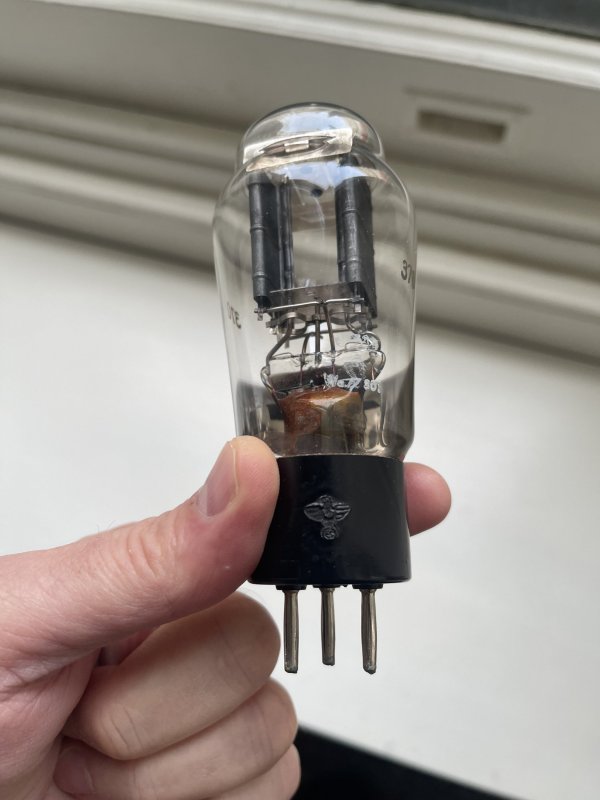
What is it about the old time RCA Globe 80- or any of the balloon style globe 80 types from the late 20’s to early 30’s? Christoph had mentioned using it and I found it interesting so I purchased one- the sound was great! Unfortunately the tube died shortly after the purchase. A member that I had mentioned this to (Carlsbad) sent me one that he had and I’m just sitting down with it now- its amazing.
What I find fascinating is that it somehow pulls the whole presentation together- it’s like it balances out the power tubes as well. So far I have not heard a rectifier tube that produces bass as well as this does within my system.
I have been using the Sophia Aqua 274B most of the time and it doesn’t compare to this. Does anyone else use these as their ”go to” rectifier? What else out there is comparable to these old globe tubes?
What I find fascinating is that it somehow pulls the whole presentation together- it’s like it balances out the power tubes as well. So far I have not heard a rectifier tube that produces bass as well as this does within my system.
I have been using the Sophia Aqua 274B most of the time and it doesn’t compare to this. Does anyone else use these as their ”go to” rectifier? What else out there is comparable to these old globe tubes?
Yes, I used a Spanish Marconi U50/80 for quite a while, and I enjoyed it. I tried to purchase an old globe 80 before that, but it was DOA. I’ve since moved on to the PV200/600 which I find to have great synergy with my Siemens F2a’s. Others have denigrated that rectifier; so who knows?
Todd,What is it about the old time RCA Globe 80- or any of the balloon style globe 80 types from the late 20’s to early 30’s? Christoph had mentioned using it and I found it interesting so I purchased one- the sound was great! Unfortunately the tube died shortly after the purchase. A member that I had mentioned this to (Carlsbad) sent me one that he had and I’m just sitting down with it now- its amazing.
What I find fascinating is that it somehow pulls the whole presentation together- it’s like it balances out the power tubes as well. So far I have not heard a rectifier tube that produces bass as well as this does within my system.
I have been using the Sophia Aqua 274B most of the time and it doesn’t compare to this. Does anyone else use these as their ”go to” rectifier? What else out there is comparable to these old globe tubes?
I hope I didn't just send you the key to great sound immortal that I will need for my GG3 which is being built.
Glad it sounds great. my go-to rectifier in amplifiers is the GZ34. Looking forward to trying different rectifiers in the DAC.
Jerry
my go-to rectifier in amplifiers is the GZ34. Looking forward to trying different rectifiers in the DAC.
A brief rectifier update:
Carlsbad, as you know, there are 2 main types of GZ34 rectifiers; the ones made by Mullard in England, and those made by Philips in the Netherland (that go by various names; Amperex, Philips Mini-watt, Dario etc). Both are excellent but they are totally different in sound. The Mullards are much warmer whereas the Dutch are far more neutral. You might wish to try both in your DAC to see what works best for your system.
If you wish to explore 4V rectifers, there is a very good alternative to spending big bucks on the Valvo G2504.I recently saw a set of Philips ABL1 pentodes for sale that I thought may be interesting but of course realized they are 4V/2.4A so I let it be. Also an AZ rectifier that falls into the same 4V category. If this adapter suits the application that would be great! Thank you for the info!
Many astute tube collectors know that the Valvo AZ12 is electrically identical to the RGN2504 and G2504 but with a different pin base (Y8A for AZ12 vs 4-pin B4 for the RGN2504 or Valvo G2504) and a slightly different capacitor specification for the transformer it couples to (which is a non-issue for the Horizon). My previous experience with the 4 volt rectifiers were equivocal, but the issues raised by other experienced users were whether the adapters I used were a limiting factor in their performance in my system.
https://www.whatsbestforum.com/thre...be-rolling-paradise.34477/page-44#post-881362 post #874
Therefore, I thought I might revisit this issue recently. Since I thought the overall balance of the RGN2004 was somewhat light in the upper bass and therefore not a good fit for classical music, I limited my re-evaluation to the RGN2504 variant which I thought was a better fit for orchestral music in my system. However since the RGN2504 or Valvo G2504 are essentially unobtainable (>$700 if you can find one), I thought that I would try the far more affordable and electrically identical variant which is the Valvo AZ12 with the Y8A straight-pin base. As you all know, there are some excellent 3rd party adapters available now for the G2504/RGN2504. However, before pulling the trigger, I wanted to revisit the AZ12 to see if my views changed on its sonics. One advantage of the AZ12 plus a ebay adapter is that the cost is <$100; whereas an authentic G2504/RGN2504 plus T/P adapters will run >1K, if you can find one).
I ordered a few stock AZ12 to 5U4G ebay adapters thinking that if I liked what I heard, I would modify the stock ebay adapter resistors and thus wind up with a nice performing tube at an bargain price.
Well, here’s a surprise I didn’t expect. It seems that the guy who makes the Chinese ebay adapter for an AZ12 never tried one in his adapter! If he did, he would realize that the AZ12 does not seat properly because the resistors he uses in his adapter are too thick to allow the tube to seat properly. I then did some adapter surgery to see what the heck was going on.
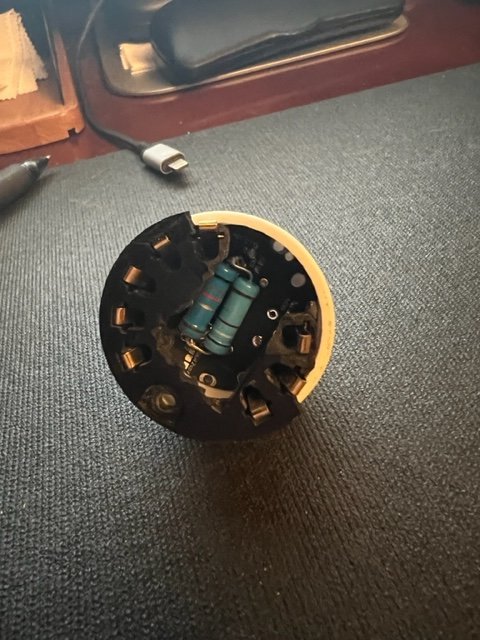
Once I got a good look at the innards, I was able to spread the 2 resistors apart a bit and flattened them which now allowed the AZ12 tube to seat securely in the adapter. Once I figured out how to flatten the resistors, I was able to flatten then on the stock adapter without butchering the base (as shown in the photo). It turns out the resistors used in the Chinese adapters are actually pretty good metal film resistors. I was expecting some cheap carbon resistors so I bought some resistors that are non-inductive Vishay/Caddocks to replace them. However, after 40 years of building crossovers, I’m not sure there’s going to a significant performance gain based purely on the resistor swap for the sole purposes of regulating voltage from 5 to 4 volts since metal film resistors are quite adequate for that purpose. (Their values are also correct and need no change from stock). However, in fanaticville, we are fond of saying “everything matters”, so I’ll look forward to getting around to installing the Vishay non-inductive resistors and see if they make a difference.
Once I managed to get the AZ12 seated properly in the stock Chinese adapter, I was able to listen to the AZ12 and found that it is indeed a very good regulator. The dynamics and bass response is outstanding. I plan to do some more extended listening once I get around to replacing the stock resistors with my Vishay/Caddocks. I admit I still have some of the original concerns I had that I had with the RGN2504 which was a lack of top end air and detail, but I’ll look forward to seeing if a resistor swap changes that original impression. In the meantime, the Cossor 53KU still reigns supreme for me as it hits all the right notes in combo with my other tubes. However, that tube is also a pricey one ($600+), which makes the AZ12 plus a modified stock Chinese adapter (with flattened resistors) a terrific audio bargain at under 100 bucks!. That alone, is a really big plus for tube rollers. Try it and let us know what you think.
I noticed this too Marty, I PM you. Perhaps you have a tip or two with the surgical procedure to push those resistors down to make room...A brief rectifier update:
Carlsbad, as you know, there are 2 main types of GZ34 rectifiers; the ones made by Mullard in England, and those made by Philips in the Netherland (that go by various names; Amperex, Philips Mini-watt, Dario etc). Both are excellent but they are totally different in sound. The Mullards are much warmer whereas the Dutch are far more neutral. You might wish to try both in your DAC to see what works best for your system.
If you wish to explore 4V rectifers, there is a very good alternative to spending big bucks on the Valvo G2504.
Many astute tube collectors know that the Valvo AZ12 is electrically identical to the RGN2504 and G2504 but with a different pin base (Y8A for AZ12 vs 4-pin B4 for the RGN2504 or Valvo G2504) and a slightly different capacitor specification for the transformer it couples to (which is a non-issue for the Horizon). My previous experience with the 4 volt rectifiers were equivocal, but the issues raised by other experienced users were whether the adapters I used were a limiting factor in their performance in my system.
https://www.whatsbestforum.com/thre...be-rolling-paradise.34477/page-44#post-881362 post #874
Therefore, I thought I might revisit this issue recently. Since I thought the overall balance of the RGN2004 was somewhat light in the upper bass and therefore not a good fit for classical music, I limited my re-evaluation to the RGN2504 variant which I thought was a better fit for orchestral music in my system. However since the RGN2504 or Valvo G2504 are essentially unobtainable (>$700 if you can find one), I thought that I would try the far more affordable and electrically identical variant which is the Valvo AZ12 with the Y8A straight-pin base. As you all know, there are some excellent 3rd party adapters available now for the G2504/RGN2504. However, before pulling the trigger, I wanted to revisit the AZ12 to see if my views changed on its sonics. One advantage of the AZ12 plus a ebay adapter is that the cost is <$100; whereas an authentic G2504/RGN2504 plus T/P adapters will run >1K, if you can find one).
I ordered a few stock AZ12 to 5U4G ebay adapters thinking that if I liked what I heard, I would modify the stock ebay adapter resistors and thus wind up with a nice performing tube at an bargain price.
Well, here’s a surprise I didn’t expect. It seems that the guy who makes the Chinese ebay adapter for an AZ12 never tried one in his adapter! If he did, he would realize that the AZ12 does not seat properly because the resistors he uses in his adapter are too thick to allow the tube to seat properly. I then did some adapter surgery to see what the heck was going on.
View attachment 119989
Once I got a good look at the innards, I was able to spread the 2 resistors apart a bit and flattened them which now allowed the AZ12 tube to seat securely in the adapter. Once I figured out how to flatten the resistors, I was able to flatten then on the stock adapter without butchering the base (as shown in the photo). It turns out the resistors used in the Chinese adapters are actually pretty good metal film resistors. I was expecting some cheap carbon resistors so I bought some resistors that are non-inductive Vishay/Caddocks to replace them. However, after 40 years of building crossovers, I’m not sure there’s going to a significant performance gain based purely on the resistor swap for the sole purposes of regulating voltage from 5 to 4 volts since metal film resistors are quite adequate for that purpose. (Their values are also correct and need no change from stock). However, in fanaticville, we are fond of saying “everything matters”, so I’ll look forward to getting around to installing the Vishay non-inductive resistors and see if they make a difference.
Once I managed to get the AZ12 seated properly in the stock Chinese adapter, I was able to listen to the AZ12 and found that it is indeed a very good regulator. The dynamics and bass response is outstanding. I plan to do some more extended listening once I get around to replacing the stock resistors with my Vishay/Caddocks. I admit I still have some of the original concerns I had that I had with the RGN2504 which was a lack of top end air and detail, but I’ll look forward to seeing if a resistor swap changes that original impression. In the meantime, the Cossor 53KU still reigns supreme for me as it hits all the right notes in combo with my other tubes. However, that tube is also a pricey one ($600+), which makes the AZ12 plus a modified stock Chinese adapter (with flattened resistors) a terrific audio bargain at under 100 bucks!. That alone, is a really big plus for tube rollers. Try it and let us know what you think.
Or just email xulingmrs and tell him the valve doesnt quite fit and let him sort itI noticed this too Marty, I PM you. Perhaps you have a tip or two with the surgical procedure to push those resistors down to make room...
It is difficult communicating with xulingmrs. This is not meant to sound disrespectful, (because what he supplies is helpful) just the way it is. I know from experience...Or just email xulingmrs and tell him the valve doesnt quite fit and let him sort it
Or just email xulingmrs and tell him the valve doesnt quite fit and let him sort it
I noticed this too Marty, I PM you. Perhaps you have a tip or two with the surgical procedure to push those resistors down to make room...
Hi guys,
I've done both. I bought several AZ12 to 5U4G adapters (they're cheap!) and did surgery to see what was necessary. Once I saw the resisitor layout it was easy to use a regular straight blade screw driver to separate the resistors ever so slightly on a "standard" unsurgerized adapter and flatten them a tiny amount through the guide post hole, which then let the tube sit all the way down perfectly. Even better, on one of the adapters I bought, I didn't have to do that at all (but it was the exception) so it seems like a QC issue in China. I wrote to xuling and told him most of his his adapters were faulty and he was surprised, but my guess is that he will now pay attention to the resistors and install them lower to the base making any modification to the adapters such as I have done unnecessary. He also refunded me $30 for the one I did surgery on, which wasn't necessary as its perfectly usable although it ain't pretty. I'm also more comfortable with a ceramic shell than a wood shell for the adapters as I'm not crazy about putting a 235° F tube (that's the actual temp- rectis get hot!) in a wood base even though it's probably pretty safe, but that's just me.
Oooooo. Fancy box!
Oooooo. Fancy box!
Yes. Personally I think @takacs75 should include Hungarian cookies in such a fancy box...
Similar threads
- Replies
- 6
- Views
- 807
- Replies
- 16
- Views
- 2K
- Replies
- 10
- Views
- 2K
- Replies
- 10
- Views
- 2K
| Steve Williams Site Founder | Site Owner | Administrator | Ron Resnick Site Owner | Administrator | Julian (The Fixer) Website Build | Marketing Managersing |











